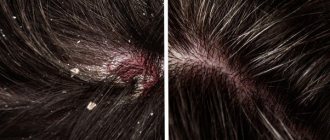Obstetrician-gynecologist, reproductive specialist, member of the Russian Association of Human Reproduction
Perevoznikova
Ekaterina Mikhailovna
11 years of experience
Obstetrician-gynecologist
Make an appointment
Adnexitis (salpingoophoritis) is an inflammatory process that forms in the fallopian tubes and ovaries. The acute stage of the pathology provokes the development of pain in the lower abdomen and an increase in the patient’s body temperature. In some cases, persistent menstrual irregularities occur. The chronic form of the disease can occur without severe symptoms, but with periodic relapses. If left untreated, numerous complications occur, including infertility. Clinical recommendations of the Ministry of Health describing gynecological pathologies separate salpingoophoritis and salpingitis - inflammation of the fallopian tubes without involving the ovaries.
General information
Adnexitis can occur in one or two-sided form. The pathology is one of the five most common diseases of the genitourinary system in women. The causative agents of the inflammatory process are microorganisms of various types: bacteria, viruses or fungi. Pathogenic microflora is resistant to the main groups of antibiotics.
Unilateral inflammation is formed as a result of staphylococci and E. coli entering the fallopian tubes, bilateral inflammation - gonococci and tubercle bacilli. The risk of developing the disease increases significantly with hypothermia of the patient's body, the presence of primary infections of the genitourinary system, violation of personal hygiene rules and sexual contacts without the use of barrier methods of contraception.
Where to cure inflammation of the appendages in St. Petersburg quickly and without complications, prices
Specialists at the Diana Medical Center in St. Petersburg are ready to deal with the problem at all stages - conduct all tests and ultrasound, effective conservative treatment or intervention. The European level of medical service and the most modern equipment allow us to make the treatment process effective and safe.
The cost of treating adnexitis is quite affordable: an appointment with a gynecologist - 1000 rubles, ultrasound of the appendages - 1000 rubles, taking blood for analysis - 170 rubles. The full cost of diagnosing and treating inflammation of the appendages depends on the stage and extent of the process, so contact our clinic as early as possible.
Etiology of the disease
Pathogenic microflora enters the fallopian tubes in various ways:
- hematogenous - along with the blood flow;
- lymphogenous - together with the lymph flow;
- descending - from the sigmoid or cecum along the peritoneal wall;
- ascending - from the vagina into the cervical canal into the uterine cavity.
Hematogenous infection of the ovaries and fallopian tubes is typical for tuberculosis pathologies of the reproductive system. Lymphogenic and descending pathways of movement of adnexitis pathogens are detected in intestinal diseases or acute appendicitis. Escherichia coli, streptococci, staphylococci, chlamydia and gonococci enter the fallopian tubes through the vagina, cervical canal and uterine cavity.
Inflammation becomes a consequence of the proliferation of pathogenic microflora on the mucous membranes of the fallopian tubes (develops as acute salpingitis). Gradually, the primary lesion increases in size and affects muscle fibers. At the next stage, pathogens penetrate into the surrounding tissues: the ovarian epithelium and the pelvic peritoneum. During ovulation, infectious agents attack the burst follicle or corpus luteum.
If left untreated, the disease leads to adhesion of the ovary to the fallopian tube and the development of an abscess. Strands become typical complications of the pathology. Obstruction of the fallopian tubes can cause the patient to develop an ectopic pregnancy.
Complications of inflammation of the appendages
Adnexitis is dangerous due to complications, the worst of which for women are:
- A tubo-ovarian abscess is a tumor, the rupture of which causes the deadly disease pelvioperitonitis, a purulent lesion of the pelvic peritoneum.
- Infertility caused by adhesions or hydrosalpinx - accumulation of fluid in the tubal lumen;
- Ectopic pregnancy due to crypts (depressions) in the fallopian tubes;
- Dyspareunia (pain during sexual intercourse) caused by low-grade inflammation and other reasons.
Symptoms
The symptoms of acute adnexitis are specific. Patients experience intense pain in the lower abdomen. Sometimes pain occurs in the perineum and spreads to the anus. The girl’s body temperature increases to 38–39 degrees, and signs of fever appear. Acute urinary retention and bloating are possible. Mucous or purulent contents are discharged from the vagina.
The increase in inflammatory changes provokes the formation of an abscess - a purulent tumor in the ovarian appendages. Sac formation can lead to rupture of the fallopian tube. In this case, purulent contents enter the girl’s abdominal cavity, causing pelvioperitonitis.
In an uncomplicated course of the disease, severe symptoms persist for ten days. The patients' condition gradually improves: the intensity of pain decreases, body temperature normalizes. The result of treatment is the complete recovery of the woman or the transition of the inflammatory process to the chronic stage.
Chronic salpingitis occurs with periodic relapses, leading to the development of adnexitis. Such situations are the result of stress, hypothermia or overwork. Patients suffer from pain and increased body temperature. In some cases, the formation of mucopurulent discharge from the vagina is noted. Within a week, the symptoms completely disappear.
Symptoms of chronic adnexitis (salpingoophoritis)
Chronic adnexitis is a direct consequence of untreated acute adnexitis. In addition to the symptoms listed above (general malaise, fever, discharge from the genitals), constant pain in the pelvis and lower back is added. Complications with the urinary organs (for example, cystitis ) and digestive problems are also likely.
Inflammation of the ovaries often disrupts the menstrual cycle, its duration and abundance change.
Diagnostic measures
Treatment of salpingoophoritis is performed under the supervision of a gynecologist after confirmation of the diagnosis. The doctor takes into account objective data, the patient’s complaints, and the results of laboratory and instrumental tests. Girls with signs of inflammation of the fallopian tubes and ovaries are prescribed:
- gynecological examination;
- microbiological examination of smears from the urethra, vagina and cervix;
- ultrasound examination of the pelvic organs;
- radiography of the uterus, fallopian tubes and ovaries;
- functional tests.
If there are appropriate indications, the doctor may insist on conducting a diagnostic operation to clarify the location of the abscess and examine the fallopian tubes.
Diagnostics
Diagnosis of salpingoophoritis at the AltraVita clinic begins with a consultation with a gynecologist. At the appointment, the doctor first interviews the patient. The doctor asks whether the woman has chronic diseases, what pathologies of the genitourinary system the patient has had in the past, and so on. This is followed by an examination in a gynecological chair.
After completing the examination, the following procedures are performed to confirm the diagnosis:
- Ultrasound of the pelvic organs;
- taking gynecological smears for flora, the presence of infections;
- general blood analysis;
- biochemical screening.
Methods for diagnosing salpingoophoritis
Ultrasound examination allows you to examine the internal genital organs, identify signs of acute or chronic inflammatory process, and assess the condition of the fallopian tubes and ovaries. At the AltraVita clinic, ultrasound is performed transabdominal and transvaginally. In the first case, the examination is carried out through the lower part of the anterior abdominal wall. To ensure that the internal genital organs are clearly visible on the screen, a woman should drink several glasses of water an hour before the procedure. A filled bladder will serve as a kind of acoustic window, conducting ultrasonic waves deep into the pelvis. During a transvaginal examination, a sensor is inserted into the vagina. This technique is more informative and does not require preparation. To prevent the spread of infection, a condom is placed over the sensor.
Microscopic and bacteriological examination of discharge allows us to identify the true causes of salpingoophoritis, determine the sensitivity of bacteria to antibacterial agents and select treatment with the most effective drugs.
A general and biochemical blood test allows you to assess the general condition of the patient’s body who has been diagnosed with this disease, identify concomitant diseases, abnormalities in the functioning of internal organs and systems.
According to the patient’s indications, the level of hormones in the blood is determined, CT and MRI, and hysteroscopy are performed. A comprehensive diagnosis of salpingoophoritis allows you to accurately determine the form and nature of the disease, significantly increasing the chances of a good clinical outcome.
Therapeutic course
Treatment of adnexitis in the acute stage is carried out in a hospital setting. The patient receives broad-spectrum antibiotics, painkillers and anti-inflammatory drugs. If an abscess is detected, surgeons perform surgery, during which the purulent contents are removed and the inflammation site is irrigated with antiseptics and antibiotics. An alternative treatment strategy involves the evacuation of fluid accumulated in the saccular formation through puncture of the vaginal vault. When the appendages melt, signs of renal failure appear and there is an extensive septic process, an adnexectomy is performed - removal of the fallopian tubes and ovaries.
Relapses of pathology in a chronic form allow the use of conservative treatment methods: medication, UV irradiation, electrophoresis, UHF therapy.
Advantages of the Mama Papa Ya clinic
Having noticed the symptoms of adnexitis, it is important to contact experienced specialists as soon as possible in order to prevent the disease from developing into a chronic form. We invite women to any of the clinics of the “Mom, Dad, Me” network in Moscow for diagnosis of adnexitis and its effective treatment at any stage. We guarantee that in the comfortable conditions of our departments and under the supervision of the best gynecologists, you will be able to quickly overcome the disease without developing complications or serious consequences.
You can find out more about the prices of services or make an appointment with a gynecologist at the clinic directly on our website or by calling the department nearest to you.
Reviews
Good clinic, good doctor!
Raisa Vasilievna can clearly and clearly explain what the problem is. If something is wrong, she speaks about everything directly, not in a veiled way, as other doctors sometimes do. I don’t regret that I ended up with her. Anna
I would like to express my gratitude to the staff of the clinic: Mom, Dad, and me. The clinic has a very friendly atmosphere, a very friendly and cheerful team and highly qualified specialists. Thank you very much! I wish your clinic prosperity.
Anonymous user
Today I had a mole removed on my face from dermatologist I.A. Kodareva. The doctor is very neat! Correct! Thanks a lot! Administrator Yulia Borshchevskaya is friendly and accurately fulfills her duties.
Belova E.M.
Today I was treated at the clinic, I was satisfied with the staff, as well as the gynecologist. Everyone treats patients with respect and attention. Many thanks to them and continued prosperity.
Anonymous user
The Mama Papa Ya clinic in Lyubertsy is very good. The team is friendly and responsive. I recommend this clinic to all my friends. Thanks to all doctors and administrators. I wish the clinic prosperity and many adequate clients.
Iratyev V.V.
We visited the “Mama Papa Ya” Clinic with our child. A consultation with a pediatric cardiologist was needed. I liked the clinic. Good service, doctors. There was no queue, everything was the same price.
Evgeniya
I liked the first visit. They examined me carefully, prescribed additional examinations, and gave me good recommendations. I will continue treatment further; I liked the conditions at the clinic.
Christina
The doctor carefully examined my husband, prescribed an ECG and made a preliminary diagnosis. She gave recommendations on our situation and ordered additional examination. No comments so far. Financial agreements have been met.
Marina Petrovna
I really liked the clinic. Helpful staff. I had an appointment with gynecologist E.A. Mikhailova. I was satisfied, there are more such doctors. Thank you!!!
Olga
Preventive measures
Prevention of pathology involves women following several simple recommendations:
- undergoing regular gynecological examinations;
- timely treatment of diseases of the genitourinary system;
- use of barrier methods of contraception.
Patients who have undergone abortion or surgery should avoid stress, excessive physical exertion, casual sex, and hypothermia.
Therapy
Treatment of acute salpingoophoritis or during exacerbations is carried out in a specialized hospital. Therapy includes the prescription of antibacterial drugs, which is carried out taking into account the sensitivity of the flora to them and the type of causative agent of the disease. Simultaneously with antibacterial therapy, detoxification therapy is prescribed, during which special anti-inflammatory suppositories are used, which reduce temperature, relieve inflammation and have an analgesic effect on the affected pelvic organs.
After the inflammatory process is relieved, the patient is prescribed absorbable medications and physiotherapeutic procedures. They will prevent the appearance of adhesions in the fallopian tubes, reducing the risk of infertility and ectopic pregnancy in the future.
If conservative treatment does not produce results, then surgery is indicated, usually laparoscopy. The scope of the operation is determined individually. If an abscess forms, the fallopian tube is removed as a source of infection. To restore the patency of the appendages, adhesions are cut and rough scars are removed.
Chronic salpingoophoritis during periods of exacerbation is treated similarly to acute. During the remission phase, the use of physiotherapy is indicated. The appropriateness of prescribing a particular technique is determined by the attending physician, depending on the severity of menstrual irregularities, the presence of adhesions, and the symptoms of the disease. Treatment includes techniques such as ultrasound, magnetic fields, pulsed currents, reflexology, mineral waters, mud in the form of applications, irrigations, baths. These procedures have a beneficial effect on general and local immunity, improve blood supply to the pelvic organs, enhance regenerative processes, and restore hormonal balance.
Patients with inflammation of the appendages are not recommended to visit hot countries with a humid climate; it is better to give preference to balneological hospitals and local sanatoriums. If the pathology causes infertility, an IVF procedure is indicated. This technique allows you to give birth to a child even for those women who have a history of hormonal or tubal infertility. Pregnancy after IVF usually proceeds normally. Hormonal support is rarely necessary to prevent spontaneous miscarriage.
Options for surgical treatment of salpingoophoritis
Treatment methods
- Ozone therapy is a physiotherapeutic technique based on the use of ozonated drugs;
- Ultrasound therapy is a method that involves the use of the Gineton apparatus, which ensures effective penetration of medicinal solutions into tissues;
- Pelotherapy – mud therapy;
- Hirudotherapy is a treatment method using medicinal leeches;
- MLT is magnetic laser therapy, during which simultaneous exposure to a magnetic field and laser occurs.
Prevention
Prevention of salpingoophoritis does not differ from that for other inflammatory diseases of the pelvic organs. In order to prevent the development of inflammation of the appendages, it is necessary to abandon casual relationships, use protection during sex, avoid abortions, and prevent the development of postpartum infections.
Women who are sexually active should avoid frequently changing sexual partners. Regular medical examinations are recommended at least every six months. This will allow you to timely diagnose diseases of the genital organs, regardless of their nature, origin, and undergo treatment.
To minimize episodes of exacerbation of the chronic form, you need to avoid physical overexertion, overwork, hypothermia, in general, everything that can weaken the body and reduce its immune defense. Here, secondary prevention of salpingoophoritis comes to the fore—prevention of complications. The patient should follow all the doctor’s recommendations very carefully. It is strongly recommended not to make changes to the therapeutic regimen on your own, to stop taking prescribed medications prematurely, or to reduce or increase the dose or frequency of administration.
If you find signs of any inflammatory gynecological disease, consult a doctor immediately. Treatment can be done at the AltraVita clinic. At the clinic, you can undergo all examinations in the shortest possible time, without wasting time on travel and long queues, because it is equipped with all the necessary diagnostic equipment. Timely treatment will allow you to achieve the fastest possible recovery, as well as avoid complications, including those from the reproductive system.









